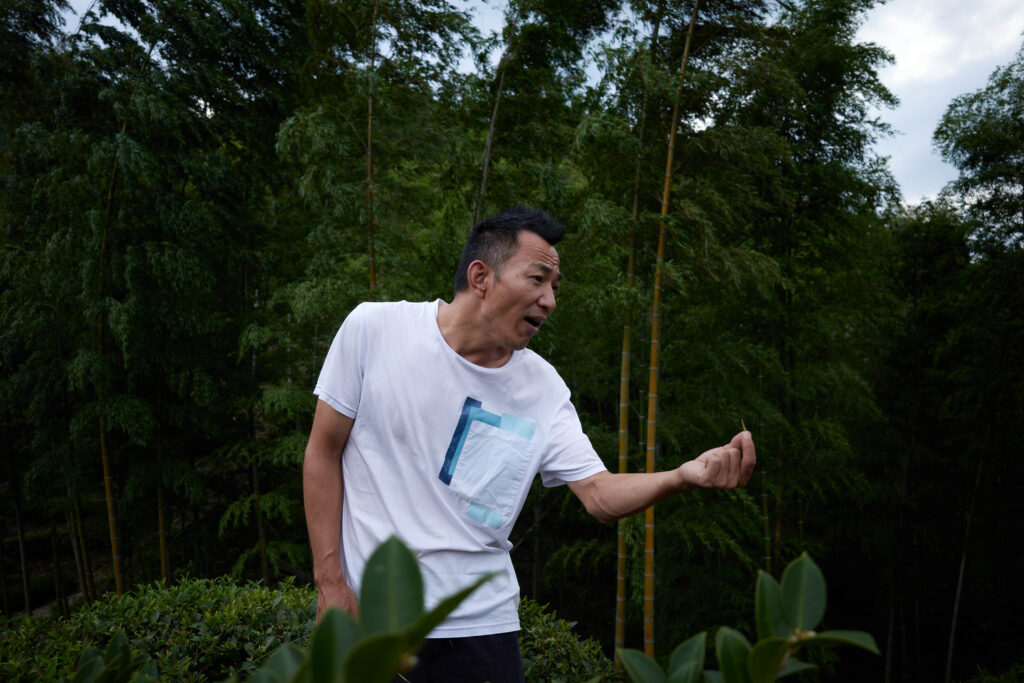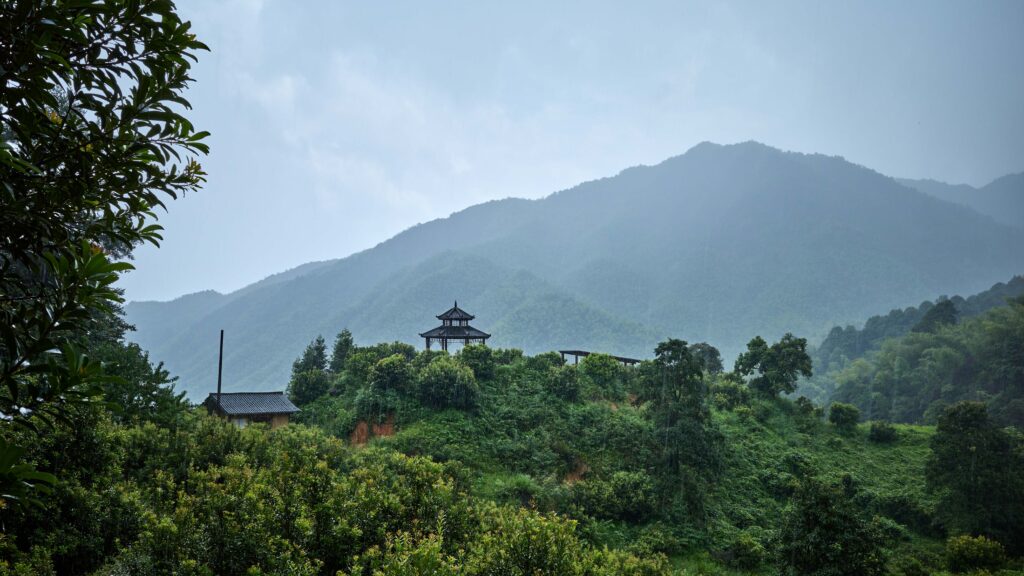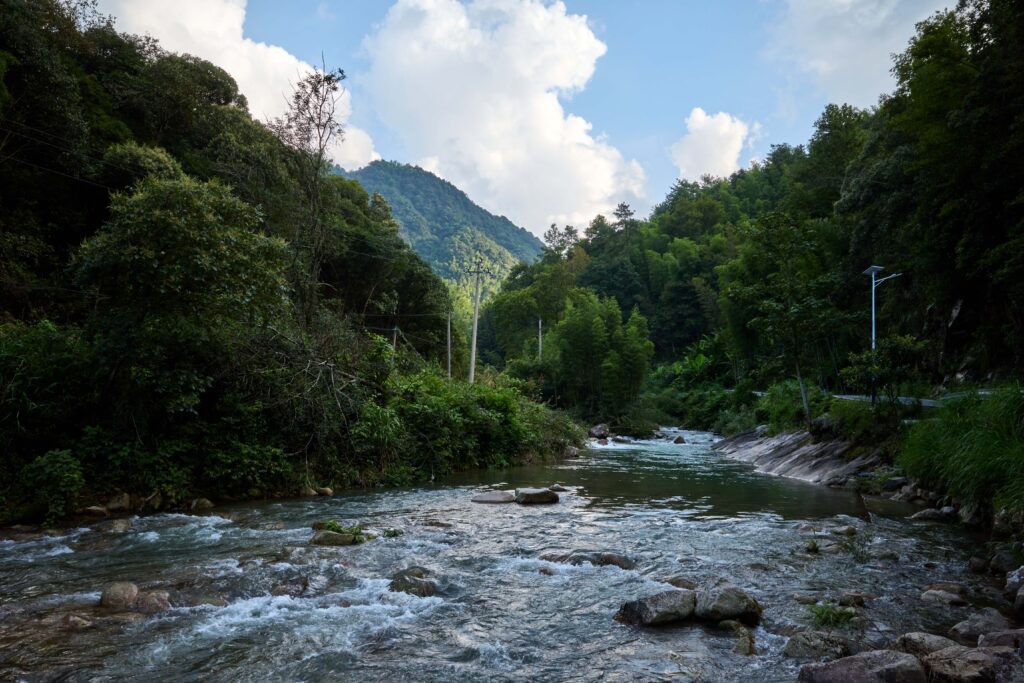This is very interesting.
In mid-2021, the Chinese government announced that the nation had “completely eradicated poverty” and achieved the goal of “building a moderately prosperous society in all respects.” At that time, CCTV’s program almost daily promoted how local government policies helped achieve the poverty alleviation goals. I’ve always been curious about how these poverty alleviation policies and subsidies actually helped grassroots business operators.
Two conversations during my time in Yanshan shed light on this issue.
At the foot of the Wuyi Mountains, I met Mr. Xu, a motel manager and tea farmer. Ten years ago, Mr. Xu left Hangzhou, the capital of Zhejiang Province, and returned to his hometown in Yanshan to start his business and set up his motel. His motel has the best scenery locally, right next to the Wuyi Mountain National Park. We stayed there during our trip.
Mr. Xu is very talkative. One afternoon, he suddenly suggested taking us on a walk through the small paths of the Wuyi Mountains. We sat next to a waterfall, drank spring water and chatted. I asked Mr. Xu, “In the past few years, have you ever received any government poverty alleviation subsidies?”

He said he never did. He didn’t dare to.
I then asked, “Why didn’t you dare?”
He gave me an example, “Suppose I accepted a 50,000 yuan subsidy from the government, I might then have to invite them for drinks, meals, maintain relationships, and even host them in my motel. Think about it, just buying a bottle of Maotai (a famous Chinese Liquor) during a meal can cost three thousand yuan. If I took the limited subsidy, the potential subsequent costs would be limitless. I can’t afford that.”
His answer left a deep impression on me. I didn’t ask for more details. Later, he told me that Yi Lianhong, the former Secretary of the Jiangxi Provincial Committee, had visited his motel. The bed I slept in was the one he used. On clear nights, you can see the stars through the glass skylight.
Another interesting conversation happened in a local ethnic village. Due to the abundance of forest land and restrictions on excessive deforestation, it is difficult for the area to develop agricultural planting, relying more on local specialty industries like producing honey or tourism. Many city dwellers like to come to these villages for agritainment: staying in tents, eating indigenous dishes.

I was fortunate to meet the village’s head. I asked her, “Is the poverty alleviation fund for poor households still available? Has everyone in the village been lifted out of poverty?”
She said, “Everyone has been lifted out of poverty, and the original poverty alleviation funds have been converted into industry subsidies, which are still being distributed.”
This contradictory response seemed somewhat amusing to me. In fact, the absolute income of the locals didn’t change before and after the declaration of “eradication of poverty.” What changed was just the “name” of the subsidies and funds. That’s it. Nothing else.

These are two brief incidents, but upon closer reflection, they are both helpless and even laughable: there are subsidies for poverty alleviation, but local grassroots operators dare not take them; people’s lives have not really improved because of the “poverty alleviation slogan,” only the form of subsidies has changed, swapping one for another. Digging deeper into these two incidents, you can see the persistence of people’s distrust of the government and the formality at the grassroots level. If these two issues cannot be improved, the entire system can never truly be “seeking truth from facts.” I think I will surely conduct more in-depth exploration and research on this matter in the future.
